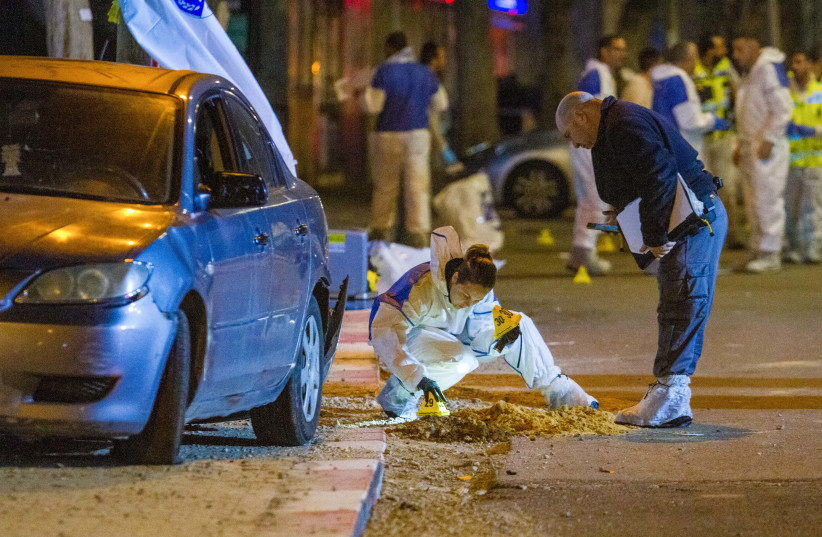The terrorist attack in Hadera is an example of Palestinian “steadfastness in confronting the occupation,” according to Hezbollah.
It was an example of a Palestinian response to the “infamous and treacherous normalization meetings [in Israel] by some Arab regimes,” the Lebanese terrorist group said in a statement published on pan-Arabist satellite television Al Mayadeen, which tends to be pro-Iranian and pro-Hezbollah.
This is a reference to the Negev Summit that is taking place this week as Israel hosts the foreign ministers of Bahrain, UAE, Morocco and Egypt.
The statement indicated that the attack was an “independent” Palestinian decision, which appears to mean it does not have a guiding hand linked to Hezbollah or Palestinian Islamic Jihad, which are known terrorist factions backed by Iran.
“The operation is the most important and most effective practical response to the infamous and treacherous normalization meetings that some Arab regimes are carrying out with the enemy entity,” the statement said, according to Al Mayadeen.

The statement called this a heroic “confrontation” with Israel. The article noted that the perpetrators were from Umm el-Fahm, a large Arab-Israeli city.
Iran’s Fars News Agency also highlighted the attack. Fars is considered close to the Islamic Revolutionary Guard Corps. The IRGC and Iran generally back Hezbollah. The statement at Fars called this a “martyrdom operation” and said Hezbollah had congratulated the perpetrators.
The attack was a way for Palestinians to confront Israel with “all available means and tools,” the statement reiterated, adding that it took place as foreign ministers from Arab states were having meetings in Israel. “These meetings are useless because the real decision is the decision of the Palestinian people,” the statement said.
The context here is that the operation appears to be linked to ISIS, which is a jihadist group that generally is opposed to Shi’ites and Iran. That means that in this case, even though the perpetrators are apparently Islamist extremists, pro-Iranian groups nevertheless back the attack.
This is because Iran and its proxies, such as Hezbollah, view Israel as the central enemy in the region, even as Iran also battles what it calls Takfiri [a term used by Muslims who accuses other Muslims of being apostates] jihadists like ISIS.
For instance, Hezbollah fought ISIS, and Iranian factions in Iraq played a key role in defeating ISIS. Nevertheless, Iran backs Hamas, which is a Sunni group linked to the Muslim Brotherhood.
This complexity of Sunni, Shi’ite, Hezbollah, Hamas, Iran and other countries sometimes being against each other, and sometimes on the same side, is one of the features of the region. In general, ISIS has not targeted Israel in recent years, and jihadist groups have focused their energies elsewhere. But Iranian-backed groups have focused their energies on fighting Israel.
